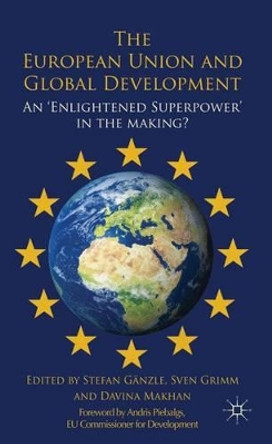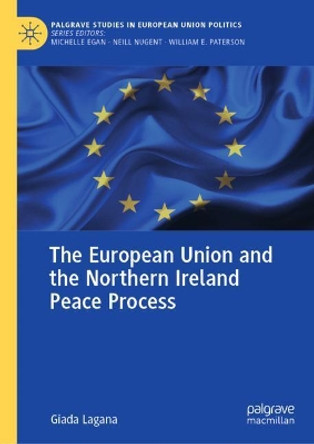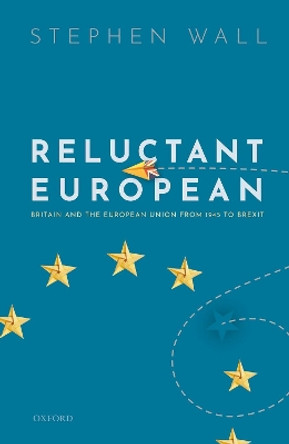Description
A bold new look at war and diplomacy in Europe that traces the idea of a unified continent in attempts since the eighteenth century to engineer lasting peace.
Political peace in Europe has historically been elusive and ephemeral. Stella Ghervas shows that since the eighteenth century, European thinkers and leaders in pursuit of lasting peace fostered the idea of European unification.
Bridging intellectual and political history, Ghervas draws on the work of philosophers from Abbe de Saint-Pierre, who wrote an early eighteenth-century plan for perpetual peace, to Rousseau and Kant, as well as statesmen such as Tsar Alexander I, Woodrow Wilson, Winston Churchill, Robert Schuman, and Mikhail Gorbachev. She locates five major conflicts since 1700 that spurred such visionaries to promote systems of peace in Europe: the War of the Spanish Succession, the Napoleonic Wars, World War I, World War II, and the Cold War. Each moment generated a "spirit" of peace among monarchs, diplomats, democratic leaders, and ordinary citizens. The engineers of peace progressively constructed mechanisms and institutions designed to prevent future wars.
Arguing for continuities from the ideals of the Enlightenment, through the nineteenth-century Concert of Nations, to the institutions of the European Union and beyond, Conquering Peace illustrates how peace as a value shaped the idea of a unified Europe long before the EU came into being. Today the EU is widely criticized as an obstacle to sovereignty and for its democratic deficit. Seen in the long-range perspective of the history of peacemaking, however, this European society of states emerges as something else entirely: a step in the quest for a less violent world.
About the Author
Stella Ghervas is Professor and Eugen Weber Chair in Modern European History at the University of California, Los Angeles, and a Fellow of the Royal Historical Society. Her book Reinventer la tradition: Alexandre Stourdza et l'Europe de la Sainte-Alliance won the Guizot Prize from the Academie Francaise.
Reviews
Remarkable...Narrated with great skill and passion...For those who wish to understand the unique European attempt to end warfare forever, this brilliantly powerful book cannot be ignored. -- Anthony Pagden * Literary Review *
Focuses on the successive attempts to exorcise war in Europe from the 18th century to the present, a theme it develops with unfailing grace, verve, and lucidity...What is in many ways the most original retrospect of the continent since 1714 that we possess. -- Perry Anderson * London Review of Books *
Magisterial...Ghervas makes startling insights throughout her impeccably researched and written book about the past and present. -- Kevin J. Callahan * Peace & Change *
At once an intellectual, political, and philosophical history, her erudite and unusually lucid book should appeal to policymakers, scholars and ordinary citizens alike. She examines five epoch-making episodes from the past 300 years in which different conceptions of peace proliferated, coalesced, crystallized and then were implemented, often imperfectly...Perhaps the first pan-European history of peace, inclusively encompassing territories and peoples from the Atlantic to the Black and Baltic seas. -- Gabriel Paquette * Times Higher Education *
Peace is not a natural state of affairs. As Ghervas shows in her elegant and stimulating book, it needs to be 'engineered,' and before that it has to be imagined. The past she brilliantly conjures is another country, to be sure, but the lessons it bears for our own troubled times are compellingly elaborated through an examination of the five major conflicts that have shaped modern Europe. Peace, she rightly concludes, is for the strong, while only the weak resort to war. -- Brendan Simms, author of Europe: The Struggle for Supremacy, from 1453 to the Present
Once considered just a utopian idea, lasting peace has been a serious aspiration, as Ghervas documents in this elegant book. Her learned and artful account follows the major European international settlements from the early eighteenth century to the European Union, as well as the contemporary thinkers who articulated their premises. An original defense of the role of diplomacy. -- Charles S. Maier, author of Once Within Borders: Territories of Power, Wealth, and Belonging since 1500
How has Europe achieved peace without becoming an empire? With amazing elegance of style and argument, Ghervas answers the question in an impressive work of intellectual, political, and diplomatic history. -- Ivan Krastev, author of After Europe
By shedding new light on key historical episodes, political figures, and philosophical ideas, Ghervas tells the fascinating story of the engineering of peace in Europe. A lively, inspiring, and useful read for all those who are committed to a lasting peace in Europe-and beyond. -- Michel Barnier, EU Head of Task Force for Relations with the United Kingdom
An ambitious, erudite, and engaging book on the search for an enduring peace in Europe. In this bracing narrative, Ghervas traces presiding 'spirits' which structure the politics of various epochs, a conceit which helps readers get inside the heads of policymakers and their critics in order to consider the possibilities and constraints in international politics from their point of view. -- Christopher Brooke, author of Philosophic Pride: Stoicism and Political Thought from Lipsius to Rousseau
Awards
Winner of Laura Shannon Prize 2023 (United States).
Book Information
ISBN 9780674975262
Author Stella Ghervas
Format Hardback
Page Count 528
Imprint Harvard University Press
Publisher Harvard University Press








